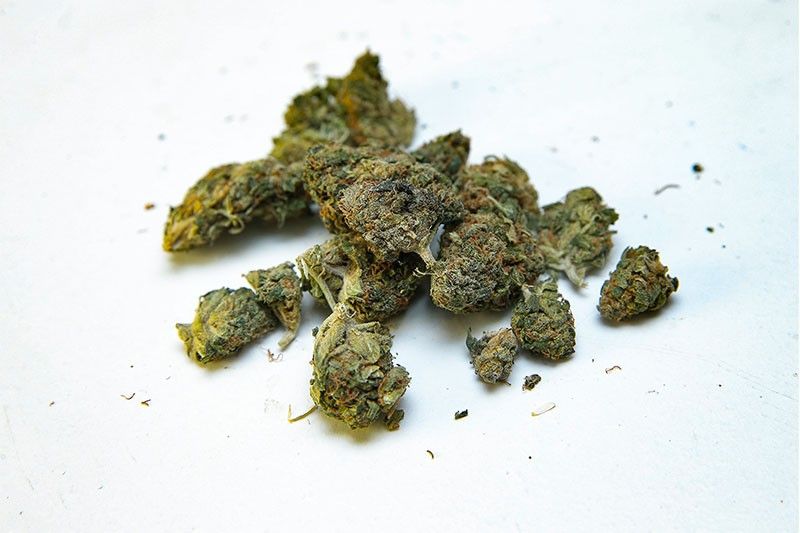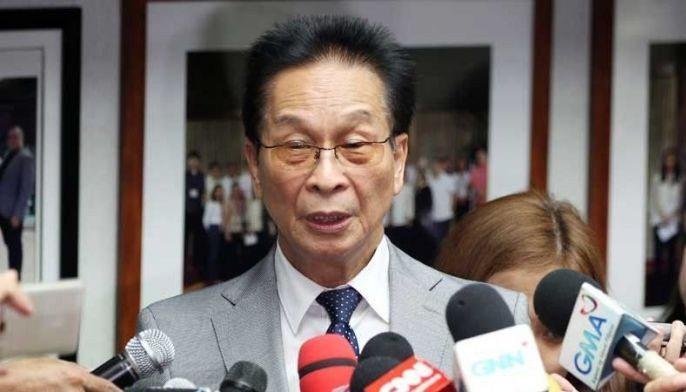Fact check: Is medical marijuana already allowed in the Philippines?

MANILA, Philippines — There is no need for a law legalizing medical marijuana in the Philippines as it is already allowed, Senate President Vicente Sotto III said Tuesday.
"That is what is in the law already. It is allowed already, there is just a process they should know about," Sotto told reporters.
The Senate leader cited Republic Act 9165, or the Comprehensive Dangerous Drugs Act of 2002, which repealed the Dangerous Drugs Act of 1972.
Section 2 of RA 9165 states that, "the government shall pursue an intensive and unrelenting campaign against the trafficking and use of dangerous drugs and other similar substances through an integrated system of planning, implementation and enforcement of anti-drug abuse policies, programs, and projects.
"The government shall however aim to achieve a balance in the national drug control program so that people with legitimate medical needs are not prevented from being treated with adequate amounts of appropriate medications, which include the use of dangerous drugs."
Compassionate use
Sotto, principal author of this law, stressed that use of medical marijuana is allowed under "compassionate use."
The term "medical marijuana" however was not explicitly mentioned in any of the sections of RA 9165.
Sotto also cited a special permit from the Food and Drugs Authority allowing access to drugs and medicines not registered in the Philippines.
"In other words, in the Dangerous Drugs Act, combined with the FDA circular, we have a 'compassionate use' provision," the senator said.
According to Department of Health Administrative Order No. 4 s. 1992, the Bureau of Food and Drugs—the agency that preceded the FDA—"recognizes the need for drugs and devices product/preparation which are not registered or are in the process of registration in the Philippines by patients who are terminally or seriously ill."
The administrative order allows the agency to issue permits "granting a Specialized Institution and Specialty Society the privilege to avail of an unregistered drug and device product through a certain licensed establishment for certain kind/type of patients, specific volume and period."
The permit is allowed for patients with HIV-AIDS, cancer, or "life-threatening conditions." Doctors and specialists requesting the special permit are required to include the estimated amount of the unregistered drug the patient will need, the "licensed drug/device establishment through which the unregistered drug may be procured" and "the names and address of the specialists qualified and authorized to use the product."
Since marijuana is illegal in the Philippines, there are no registered dispensaries or outlets to get them from.
Under the DOH aministrative order, the drug establishment identified in the application for a permit "shall secure clearance to import from BFAD and its applications" and submit "a certificate that the product is currently registered in the country of origin" and "a true copy of the CSP issued to the Specialized Institution (SI)/Specialty Society (SS)."
Applications for compassionate use permits
Former Health Secretary Paulyn Jean Ubial had earlier confirmed that the FDA grants exemptions for the compassionate use of marijuana.
In October 2016, Ubial said patients may request for a special permit from the FDA to use marijuana for medical purposes.
READ: ‘Marijuana’ pinapayagan ng FDA - DOH
An October 2017 report from CNN Philippines showed that the FDA has received an average of 50 applications a month for compassionate use special permits.
According to the CNN Philippines report, the FDA has received only one application to import cannabis oil since the permits were first issued in 1992.
Possession of marijuana resin or marijuana resin oil is illegal in the Philippines but, under the circular, patients who need cannabis oil for medical purposes may seek a special permit for compassionate use.
Sotto, an anti-drug advocate, once threatened Health Secretary Francisco Duque III that he would object to the latter's confirmation if he would insist on allowing the use of marijuana for other purposes.
Duque has been supportive of House Bill 180, or the proposed Philippine Compassionate Medical Cannabis Act, which the House committee on health approved in September 2017.
Sotto's comments about the legalization of medical marijuana came after Miss Universe Catriona Gray spoke on the issue on Monday.
During the question and answer portion of the pageant, the Philippine bet was asked for her opinion on the regularization of marijuana.
"I’m for it being used for medical use, but not so for recreational use," Gray said.
- Latest
- Trending































